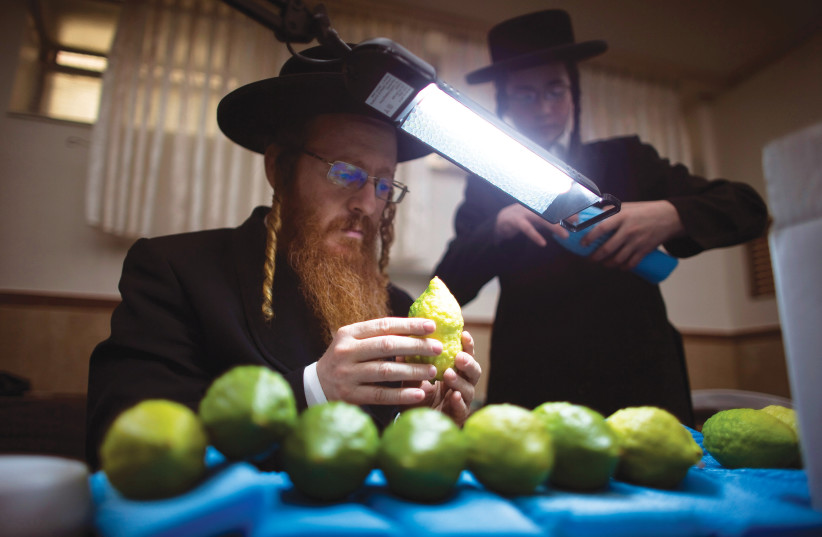A viral video has thrust Shas chairman and MK Arye Deri into the spotlight as he proudly flaunts what he claims to be his most expensive etrog ever, boasting a price tag of $5,000, purchased entirely in cash. However, this revelation has sparked questions regarding the legality of the transaction.
The etrog, a cherished yellow citron, holds profound significance in Jewish tradition during Sukkot, one of the four species essential to the holiday’s rituals. Deri’s spokesperson has swiftly responded, explaining the historical context of Deri’s etrog blessings and the jest behind his recent remarks, where he humorously defended the honor of a smaller Moroccan etrog.
In the video, Deri is seen proudly showcasing his most expensive etrog ever, valued at $5,000, which he purchased with cash – according to what he said in the video. However, if the actual price of the etrog exceeded this amount, it could potentially be a violation of cash transaction laws. According to these regulations, cash transactions between private individuals are limited to NIS 15,000, while the sum he claimed to have spent is more than NIS 19,000.
The etrog, a yellow citron, plays a vital role in Jewish traditions during Sukkot, one of the four species alongside the lulav (palm branch), hadassim (citron), and aravot (willow). Throughout Sukkot prayers, the etrog is held or waved, making its selection a carefully considered part of the holiday rituals.

A variety of etrogs for Sukkot
Deri’s spokesman said that “for many years, Rabbi Aryeh Deri… has traditionally blessed a variety of etrogs during the Sukkot holiday. These etrogs have included various types, such as Moroccan, Yemeni,” and other types.
“This year, his [Deri’s] sukkah featured large etrogs along with a smaller Moroccan etrog. In a lighthearted manner, and in defense of the Moroccan etrog’s honor, Rabbi Deri jokingly remarked, ‘Don’t be fooled by the Moroccan etrog’s small size; at the Satmar [hasidic group in] America, people pay thousands [of dollars] for it in cash.’ It should be noted that these comments were made in jest. In reality, like all of his etrogs, Deri purchased the Moroccan etrog in Israel for only a few hundred shekels, as is his customary practice.”
